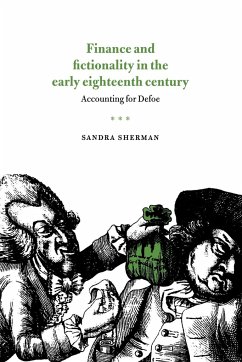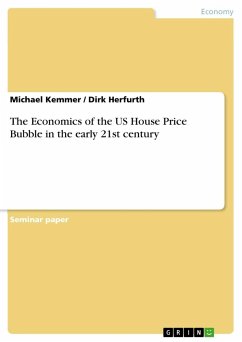In the early eighteenth century, the increasing dependence of society on financial credit provoked widespread anxiety. The texts of credit - stock certificates, IOUs, bills of exchange - were denominated as potential 'fictions', while the potential fictionality of other texts was measured in terms of the 'credit' they deserved. Sandra Sherman argues that in this environment finance is like fiction, employing the same tropes. She goes on to show how the work of Daniel Defoe epitomised the market's capacity to unsettle discourse, demanding and evading 'honesty' at the same time. Defoe's oeuvre, straddling both finance and literature, theorizes the disturbance of market discourse, elaborating strategies by which an author can remain in the market, perpetrating fiction while avoiding responsibility for doing so.
Hinweis: Dieser Artikel kann nur an eine deutsche Lieferadresse ausgeliefert werden.
Hinweis: Dieser Artikel kann nur an eine deutsche Lieferadresse ausgeliefert werden.








